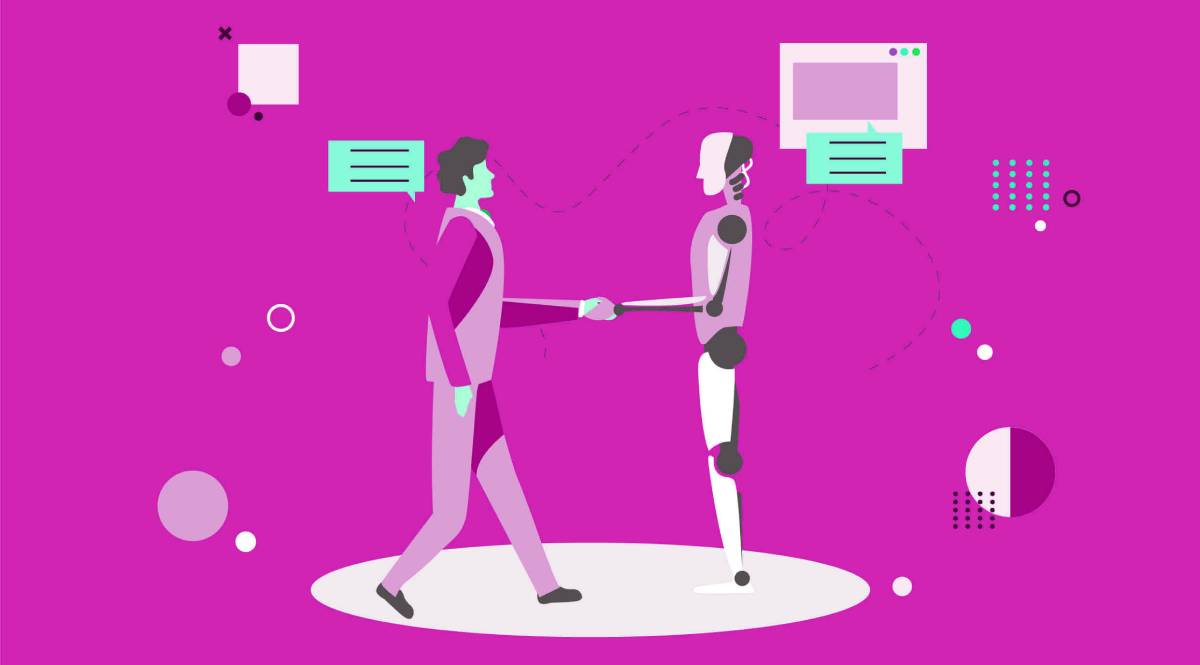In Human Resources
As remote work continues to redefine the landscape of modern business, Human Resources (HR) departments are faced with the challenge of managing teams spread across different time zones, cultures, and work environments.

Management

As companies adapt to this new reality, the integration of AI-driven HR platforms has become essential in managing and supporting distributed teams. These platforms are not just a trend but a transformative force, helping organizations maintain productivity, engagement, and employee well-being across distances.
The Shift to Remote Work: A New HR Paradigm
Remote work has transitioned from a temporary response to the pandemic to a permanent fixture in the business world. This shift has brought undeniable benefits, such as access to a global talent pool, reduced overhead, and improved work-life balance. However, as many HR professionals have realized, managing remote teams comes with unique challenges that require innovative solutions.
"Managing remote teams requires more than just virtual meetings; it demands a comprehensive approach to employee engagement and performance," says Jane Smith, an HR consultant specializing in remote work strategies. "Traditional HR practices often fall short in this new context."
The complexities of remote work call for a new HR paradigm, one that leverages technology to bridge the gap between geographically dispersed teams and the organization. Here is where a concept of a HR platform for remote teams comes into play.
AI: The Driving Force Behind Modern HR
Artificial Intelligence is at the heart of this transformation. AI-driven HR platforms are revolutionizing how companies manage remote teams by automating routine tasks, providing data-driven insights, and enhancing decision-making processes.
For instance, onboarding and training have become more efficient with AI. New hires can complete paperwork, attend virtual orientation sessions, and access personalized training modules seamlessly, even when they are miles away from the office. This ensures that employees feel integrated and supported from day one.
Performance management has also evolved with AI. Real-time tracking and analysis of employee performance provide managers with valuable insights into productivity trends. "AI tools allow us to move away from traditional, rigid performance reviews and instead focus on continuous feedback and support," explains Mark Johnson, an HR manager at a tech startup.
Beyond performance, AI is playing a crucial role in enhancing employee engagement and well-being. By analyzing communication patterns, survey results, and feedback, AI can identify early signs of disengagement or burnout. This enables HR teams to intervene proactively, implementing initiatives that boost morale and maintain a positive work culture.
"AI is not just about efficiency; it's about empathy," says Sarah Lee, an expert in HR technology. "By understanding the needs and emotions of remote employees, AI helps HR teams create a more supportive and inclusive work environment."
Crafting Effective Remote Work Policies
While AI provides the tools, effective remote work policies provide the framework. These policies are vital in setting clear expectations, fostering a positive work culture, and ensuring legal compliance.
One of the key elements of a successful remote work policy is flexibility. Remote work thrives on the ability to accommodate different time zones, work styles, and personal circumstances. Companies that offer flexible work hours and allow employees to choose their preferred environment often see higher levels of satisfaction and productivity.
Communication is another critical aspect. Clear communication protocols ensure that all team members are informed and engaged, no matter where they are located. This involves not just the frequency of communication but also the methods, such as video calls, messaging apps, and collaborative tools.
Performance metrics in a remote setting should focus on outcomes rather than hours worked. "The shift from micromanagement to results-driven work is crucial," notes Johnson. "It empowers employees to take ownership of their tasks and encourages a more autonomous work style."
Technology and security also play a significant role in supporting remote teams. Employees need access to the right tools and resources to perform their tasks effectively. At the same time, companies must establish security protocols to protect sensitive data in a distributed work environment.
Lastly, well-being and mental health should be at the forefront of remote work policies. Remote work can lead to feelings of isolation, so it's essential to promote work-life balance and provide mental health resources. As Lee points out, "Prioritizing employee well-being is not just a nice-to-have; it's a business imperative in the remote work era."
Conclusion
The integration of AI and thoughtful remote work policies represents the future of HR for remote teams. As businesses continue to embrace remote work, these tools and strategies will be essential in managing a distributed workforce effectively. By combining the power of AI with clear, flexible policies, organizations can create a thriving remote work environment that attracts and retains top talent, boosts productivity, and fosters a positive company culture.
FAQ: HR Platforms for Remote Teams
What are the benefits of using an AI-driven HR platform for remote teams?
AI-driven HR platforms automate tasks, enhance employee engagement, and provide data-driven insights for better decision-making, making them invaluable for managing remote teams.
How can AI improve employee engagement in remote teams?
AI monitors engagement through sentiment analysis and feedback, helping HR teams address issues early and maintain high morale.
What should be included in a remote work policy?
A remote work policy should include flexibility, clear communication protocols, outcome-focused performance metrics, technology and security guidelines, and support for employee well-being.
How does AI help in reducing bias in recruitment for remote teams?
AI analyzes candidate data objectively, minimizing unconscious bias in hiring decisions and supporting diversity and inclusion.
What role does technology play in supporting remote teams?
Technology is crucial for communication, collaboration, and productivity in remote teams, with AI-driven HR platforms streamlining these processes for better outcomes.

